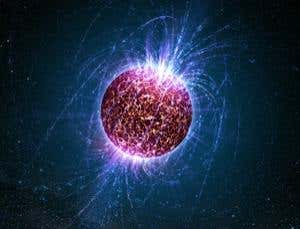By Rachel Courtland
The crust of neutron stars is 10 billion times stronger than steel, according to new simulations. That makes the surface of these ultra-dense stars tough enough to support long-lived bulges that could produce gravitational waves detectable by experiments on Earth.
Neutron stars are the cores left behind when relatively massive stars explode in supernovae. They are incredibly dense, packing about as much mass as the sun into a sphere just 20 kilometres or so across, and some rotate hundreds of times per second.









Comments are closed.